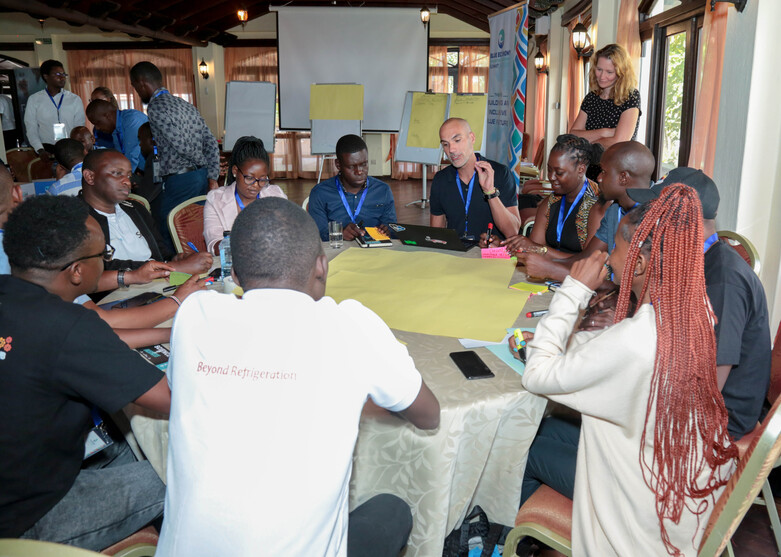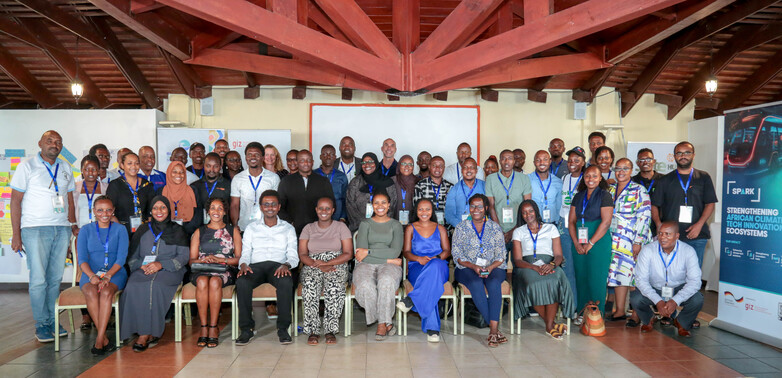Supporting African innovators to develop gender-responsive, environmentally friendly and research-based solutions
SPARK – Strengthening African technology ecosystems to support climate-friendly, gender-responsive and research-based innovations
-
Client
German Federal Ministry for Economic Cooperation and Development (BMZ)
-
Country
-
Runtime
2024 to 2027
-
Products and expertise
Economic development and employment
Context
The term ‘just transition’ refers to the process of moving towards climate-friendly ways of living and doing business. This requires innovation in every sector of the economy to reduce CO2 emissions, conserve resources and develop climate-friendly technologies.
As yet, however, the potential of African start-ups in the area of climate tech has not been fully harnessed. The number of successful start-ups is relatively low compared with other sectors, and there are too few investable solutions. It takes too long to convert research findings into usable solutions. Another problem is that gender inequality is pronounced in the climate tech industry.
When it comes to talks on climate, Africa is usually seen as a recipient of innovative solutions rather than a producer. This can deprive the countries of important opportunities to position themselves as key players in the field of climate adaptation.
Objective
Africa's technology sector is able to implement climate-friendly, gender-equitable and research-based innovations more efficiently.
 © GIZ
© GIZApproach
The project operates in three priority areas.
- Improving the quality of climate tech solutions. The project offers advice and funding to help build partnerships between start-ups, intermediaries, and the academic sector.
- Promoting the work of innovation support organisations (ISOs). It advises and financially supports them in collaborating across borders, establishing and expanding programmes for start-ups in the climate tech sector and promoting women-run businesses.
- Facilitating access to capital for start-ups. To meet this objective, the project works with a range of funders. This approach also aims to reduce the barriers to attracting investment to women-run business. Through its advisory work and grants, the project supports training programmes for funders in areas such as gender-equitable and climate investment.
 © GIZ
© GIZLast update: January 2025




